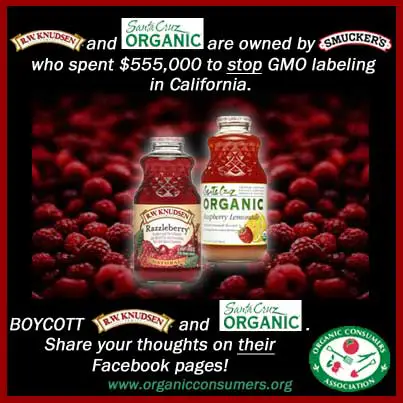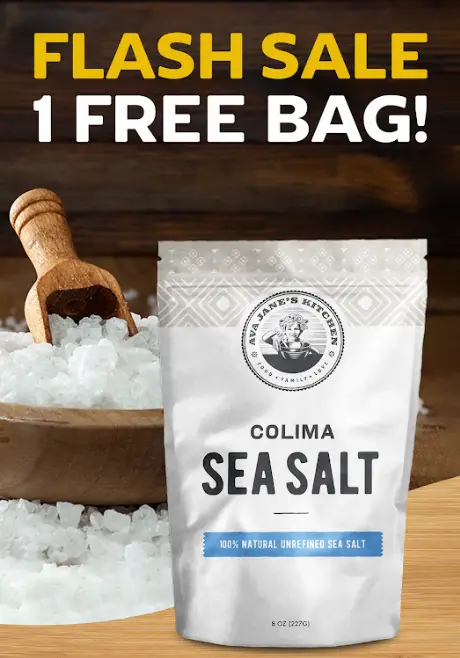Several companies have run afoul of Internet activists in recent weeks over their support for the highly controversial genetically modified organisms, or GMOs, including Kellogg’s, Cheerios, the Girl Scouts of America and their famous cookie brand, and more.
Recently, the jelly/jam company J.M. Smucker became the latest to draw the ire of a handful of online activists for its ongoing use and support for biotechnology, and released the following statement according to its website:
The J.M. Smucker Company is as committed today to ensuring the quality of our products as our founder Jerome Monroe Smucker was more than 115 years ago when he placed his signature on every jar as his personal guarantee of quality. As such, our products are manufactured using strict quality control procedures that meet or exceed all applicable government and industry standards.
For the past 20 years, ingredients from crops grown using biotechnology (GMO) have been used in a wide variety of food products. This technology adds desirable traits from nature, without introducing anything unnatural or using chemicals. These crops are not only safe for people and our planet, but the technology also produces a more plentiful, economical, and dependable quality food supply.
Many of the world’s leading health and scientific organizations and regulatory agencies that study the safety of food, including the U.S. Food & Drug Administration, the American Medical Association, the World Health Organization, Health Canada, the U.S. Department of Agriculture, and the National Academy of Sciences, have all found that biotechnology ingredients are safe and have no negative health effects associated with their use.
Today, 70-80 percent of the foods we eat in the U.S., both at home and away from home, contain ingredients from biotechnology. Agriculture frequently grown using biotechnology such as corn, soybeans, and sugar beets require fewer pesticides, less water, and keep production costs down thereby ensuring an affordable food supply. In addition, one in eight people among the world’s growing population of seven billion do not have enough to eat, and safe and effective methods of food production, like crops grown using biotechnology, can help us feed the hungry and malnourished in developing nations around the world.
We recognize and respect that consumers appreciate a variety of product options. Therefore, we seek to provide numerous organic options in our product categories, for consumers that prefer products made without ingredients from, or farming methods using, biotechnology.
We support and will continue to support a variety of partnerships and collaborative efforts, such as the Grocery Manufacturers Association, that address issues that are of importance to the Company and our constituents — consumers, customers, employees, suppliers, communities, and shareholders.
As always, Smucker remains committed to manufacturing the high quality and safe products you have come to expect.
While the volume of activists on Smucker’s Facebook page isn’t anywhere near what we’ve seen on pages of other companies that have been boycotted over GMO support like Kellogg’s and Girl Scout Cookies, it has been noticeable.
The Problem with Smucker’s Position on GMOs
Once again, an American food giant has been forced to respond to people who simply want to see GMO-free options in their favorite foods, in most cases foods they’ve been buying for many years.
Smucker’s had the chance to step up to the plate and at least offer more GMO-free options to customers, but instead chose to toe the party line in regards to the biotech industry and it oft-repeated, and oft-criticized, talking points.
The company does offer a line of “Natural” products, but despite the marketing line that “these products contain ingredients from natural sources,” they actually seem almost certain to contain GMOs. Ingredients from this line, which can be viewed here, include “sugar” which is almost certainly GMO since it’s highly likely to be from GMO sugar beets. Citric acid also is usually from GMO sources when not specified on packaging.
Smucker’s plan to provide organic options also appears to be taking quite a while, if they’re even still in the works, as organic products are not mentioned on its website.
Considering that the company uses a “traditional” image, many people still buy its jams and jellies expecting to get a truly natural product. But it appears as if they’re being deceived, as the pro-GMO statements by the company seem to support.
The JM Smucker company has also been the target of a boycott by the Organic Consumers’ Association over its $550,000 payment against GMO labeling in California in 2012 and over $240,000 against a similar Washington initiative in 2013, which is even more than Kellogg’s spent.
The company has also been sued over its use of the word natural on its vegetable oil product Crisco, which the suit noted almost certainly contains GMOs. The organic brand Santa Cruz is also under its umbrella.
Answering Smucker’s Pro-GMO Claims on Its Website
In regards to the “feeding the world” point, Smucker’s should take note of two recent UN reports that showed that small-scale mostly organic farming is the way to “feed the world,” not biotechnology and GMOs, which often lock farmers into contracts where they’re forced to give up their sovereignty and re-buy seeds every year.
Crops of the GMO variety also use more pesticides: much more in fact, according to a report by Charles Benbrook, a research professor at the Center for Sustaining Agriculture and Natural Resources at Washington State University, which showed an increase of 404 million pounds from the time they were introduced in 1996 to 2011, as this Reuters article notes. Several other studies echo this, and many farmers are even seeing lower yields due to superweeds and pests that have developed a resistance to the overuse of Roundup chemicals and GMOs.
In addition, the health risks of GMOs are still very real according to large swaths of independent scientists and institutions.
Over 800 scientists worldwide from 84 countries recently signed a letter saying they are extremely concerned about the potential side effects of GMOs to the health of humans, animals, the environment, and biodiversity as well since they are capable of cross-contaminating non-GMO crops easily and from large distances.
And despite their claims that GMOs have been proven safe because of what a handful of government regulatory agencies say, it’s well known that several independent studies have routinely found harmful effects on animals including a recent one in Egypt that yet again showed tumors in rats after 91 days, a day longer than the usual government trials.
At least 19 other independent studies shown here in this article demonstrated organ damage in lab animals fed a diet of GMOs as well, a trend that always occurs in non-government studies.
Why Does Smucker’s Need GMOs, Anyway?
All of this of course begs the question of why a jelly/jam company that has gotten by without GMOs for most of its existence, and always portrayed itself as being traditional and somewhat healthy, needs them in today’s day and age.
Jam/Jelly can be made simply with fruit, pectin, and sugar, and cane sugar is easily available for Smucker’s to purchases rather than GMO sugar or corn syrup from GMO corn. Honey and agave are other options they can use to eliminate or minimize GMO contamination.
Of course, such a switch will likely cost them some dough to pull off.
But the customer is always right, and if enough of us bind together and continue to challenge them on their blatant support for GMOs, they will eventually relent just like Cheerios did, or face more and more boycotts like Kellogg’s did, which has ultimately hurt their image (and their bottom line) and they will have no choice but to make an even costlier change.
If you’d like to tell Smucker’s how you feel about their support and use of GMOs, visit their Facebook page here. These boycotts and awareness campaigns really do work, that’s for sure.
Related: How General Mills’ (Cheerios’) CEO Sought to Make GMOs “Natural”
Thanks for installing the Bottom of every post plugin by Corey Salzano. Contact me if you need custom WordPress plugins or website design.












